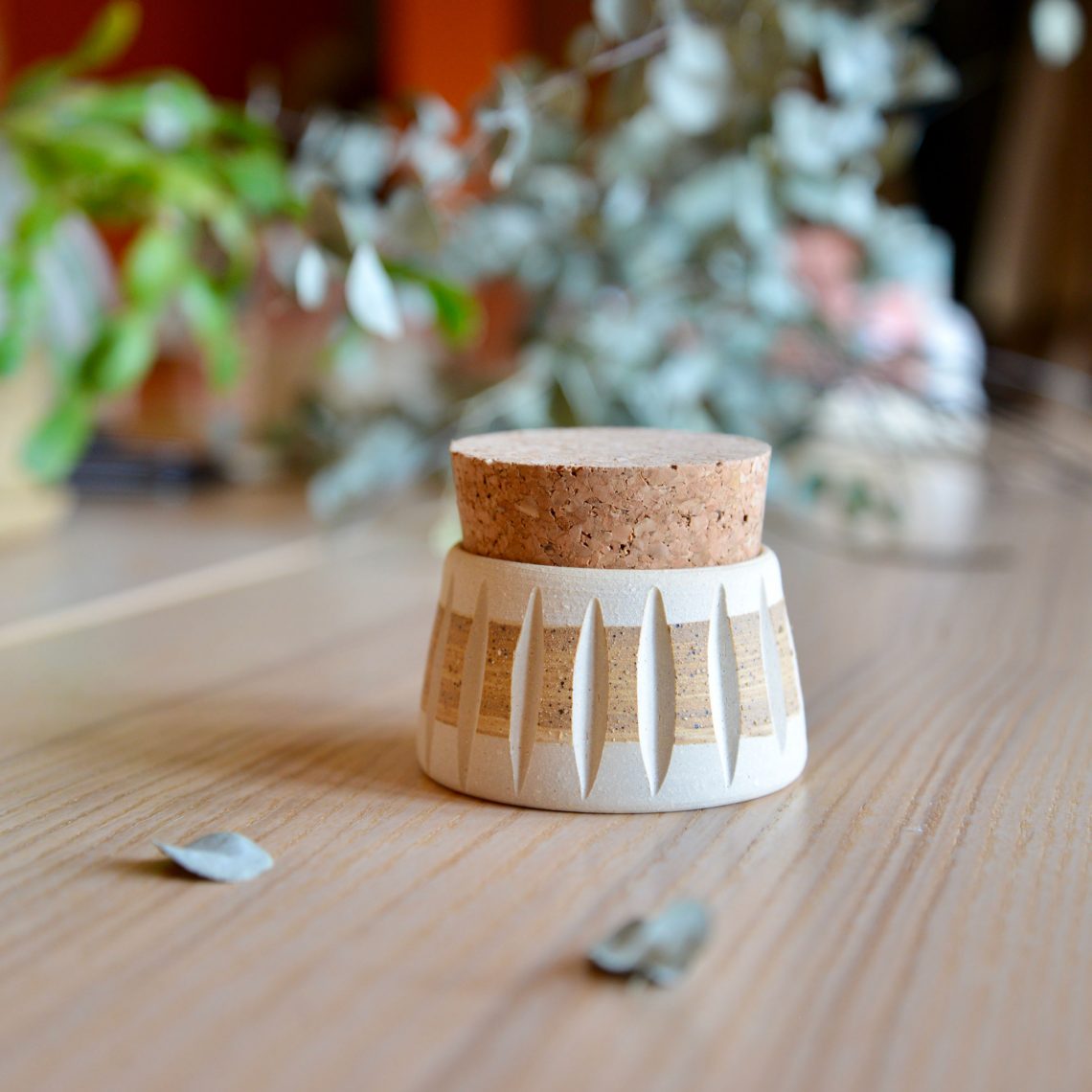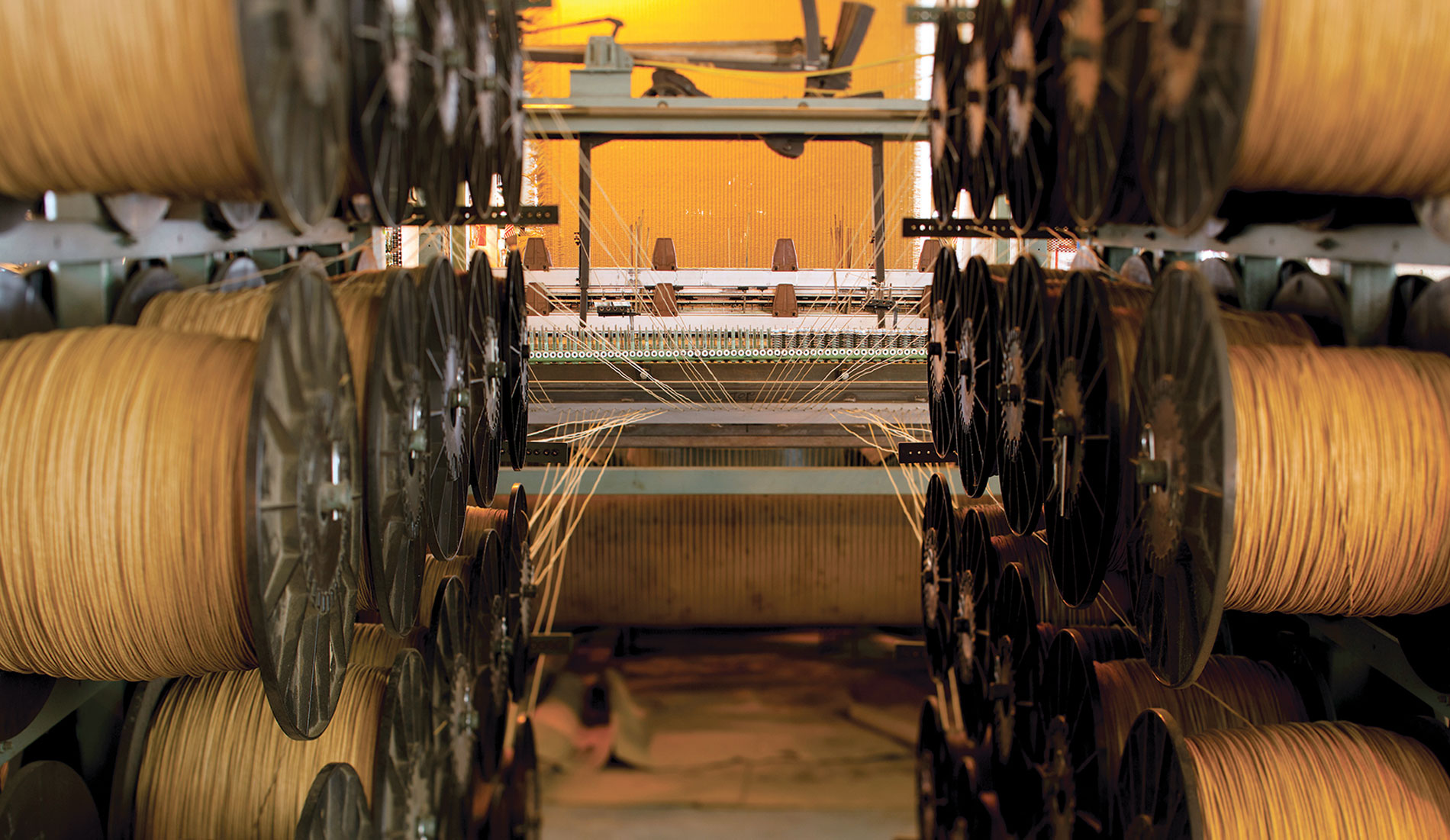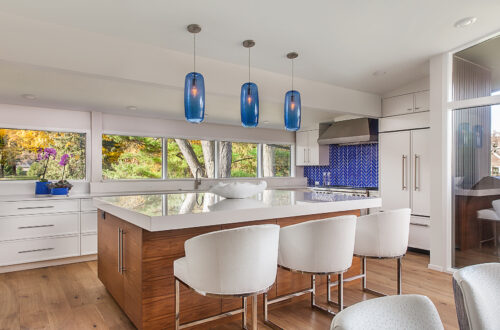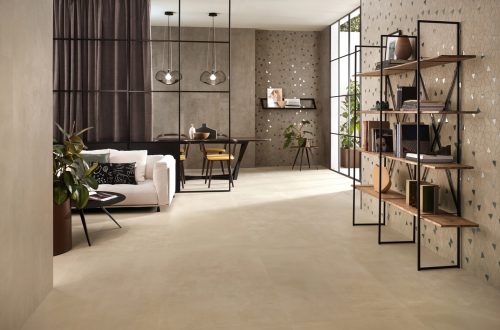Inspired by her experience working in agriculture, Carrie Hause, owner and artist of Held Ceramics in southeastern Michigan, shapes uniquely textured pottery reflective of the natural world. Her work is also informed by a pottery educational background from Pewabic Pottery, a working pottery and National Historic Landmark pottery founded in Detroit in 1903, and its ceramic arts classes; and from Oakland Community College courses in Bloomfield Hills, Michigan. It is this combination of ceramic education and agricultural work that has led Hause to cultivate a small business driven by functional works of art that nurture plant life.
“I like to use some unique surface textures. All my work is plant-focused and I am just a plant person, so I have fun making things for plants. I like to do more interesting textures and shapes, because I want to embrace the handmade nature of my work,” Hause said. “Keeping things simple, but doing it in a way that you can still tell it is handmade and not just coming from Target.”
Held Ceramics’ online platform features an array of artisan planters, vases, spoon rests, soap dishes, and jars—many of the creations are not only aesthetic, but also cater to the tactile experience with bumps, points, and rivets on the surface. Much of Hause’s work is reflective of the outside environment, with glazes ranging in natural tones such as shades of creams, browns, and pastels. Hause noted that when mixing glazes, she starts with a base glaze and tweaks it by shifting the chemical balance and adding different amounts of coloring until it is perfect for the particular project.
Founded in 2015, Held Ceramics originally was a part-time operation as Hause turned her attention from selling produce at local markets when agricultural work slowed due to changing seasons to selling the pottery-work she had done through the number of ceramics classes she had taken throughout the years. Hause noted her initial business growth occurred after attending many in-person shows, starting with the Eastern Market in Detroit. From there, local stores began requesting Held merchandise as part of their stock, and the business gained recognition from being displayed in local brick-and-mortar shops.
“In the past, more than 60 percent of my revenue has come from wholesales, so selling directly to stores. The rest I make up from doing retail shows and selling online. But last year with COVID-19, nobody knew what the year was going to look like,” Hause said.
“It ended up being an absolutely insane year for me. I think there was just this huge push for people to support small businesses, which was really amazing, so I ended up getting tons of wholesale orders. Last year, when I was in my busiest part of the year, I was making almost exclusively for wholesale. There were some days when I’d throw about 70 pieces in a day, which is a lot,” Hause added.
Hause also noted though when she was making more than 100 pieces a week primarily for wholesale orders, the work was not sustainable for her company’s growth, or her personal well-being, as the art of throwing pottery requires a lot of physical work. The time spent making wholesale orders also took away from the time that could have been spent designing new pottery collections or more inventive one-off pieces for her online stock.
“When I was that busy, it was hard to feel creative and that it was fun, and I think part of working for yourself is supposed to be fun,” Hause said. “I didn’t want to lose the creative energy that made me want to start the business in the first place.”
Indulging in her initial inspiration for Held Ceramics, Hause moved to a new home outside of Detroit earlier this year and made the decision to transition her studio from an interior space in the city into a greenhouse in her backyard. There, she can throw on her wheel and fulfill online orders from the natural beauty of the outdoors, as well as the comfort of her own home.
“That was the thing that was always hard for me, especially having the farming background—it was hard for me to spend all summer being in my little studio,” Hause said.
As one of Held Ceramics’ core business practices, sustainability is woven throughout her process of building clay creations. To eliminate waste, all scrap clay leftover from projects is recycled and used to create other products by rehydrating the clay and then drying it into a usable level of wetness. Hause noted that most of the drip trays for sale on her website are also made of recycled clay from her studio.
“I’m always trying to think of ways where I can minimize waste from the world and use it for things that I would be buying anyways,” Hause said.
Hause uses recycled packaging for Held shipments, avoiding plastic completely unless it is also recycled. Friends and family also assist in sustainable practices by saving their brown packing paper from personal orders and giving it to her to reuse when shipping Held products. Benefitting the local economy and reducing fossil fuel use from heavy clay shipments, Hause also purchases her clay and dry materials from a local company, Rovin Ceramics, located in Ann Arbor, Michigan.
“This world has so many things, but because I am a creator of goods, I try to kind of counterbalance that with doing some sustainable practices in my business as much as I can,” Hause said.
“I am a bit of a minimalist and so I’m a big supporter of not buying a ton of things, but buying things that are special or meaningful to you. I would like to be a good advocate for responsible shopping and responsible supporting of artists,” Hause added.
Although she is looking to scale back on making wholesale orders, Hause noted she is always trying to support her local Detroit community and has partnered with other small businesses in her area by making displays for a jewelry company, and vases for a local flower, farm, and design studio.
While planning to be more selective when choosing to attend art shows in the future and focus primarily on her online platform, Held Ceramics will continue to be sold at shows in the Detroit area, as Hause said she is looking forward to seeing familiar faces in the community again.
“I want to make beautiful things, but I also want them to be functional, and I just think it is an extra special thing when you can have something that is beautiful and functional,” Hause said. “That’s at the heart of everything I do. My work is all about combining the things I’m passionate about: I love growing things, I love cooking, I love ceramics, and I also love being home. I try to make beautiful things that relate to all of those.”
Text: Brenna Buckwald
Photography: Carrie Hause | Held Ceramics






